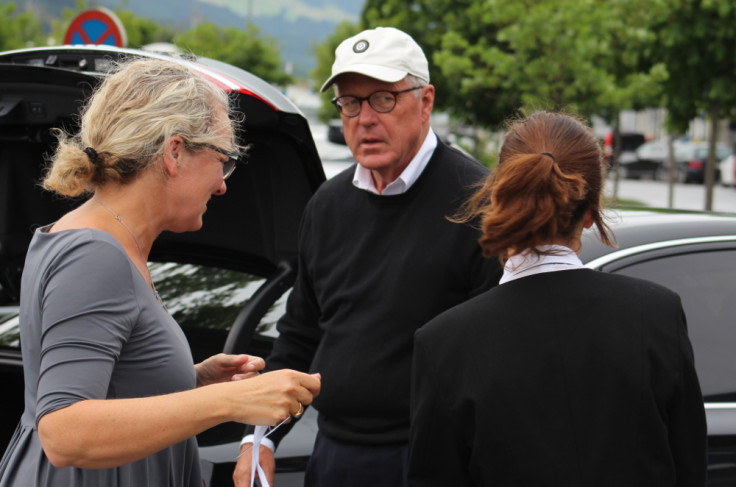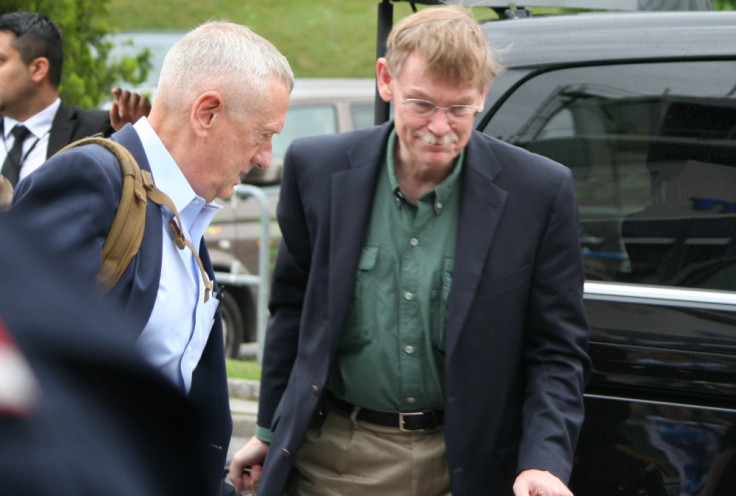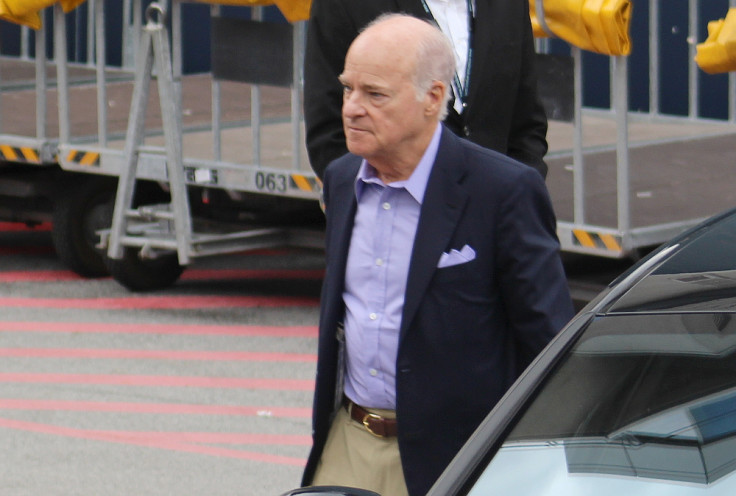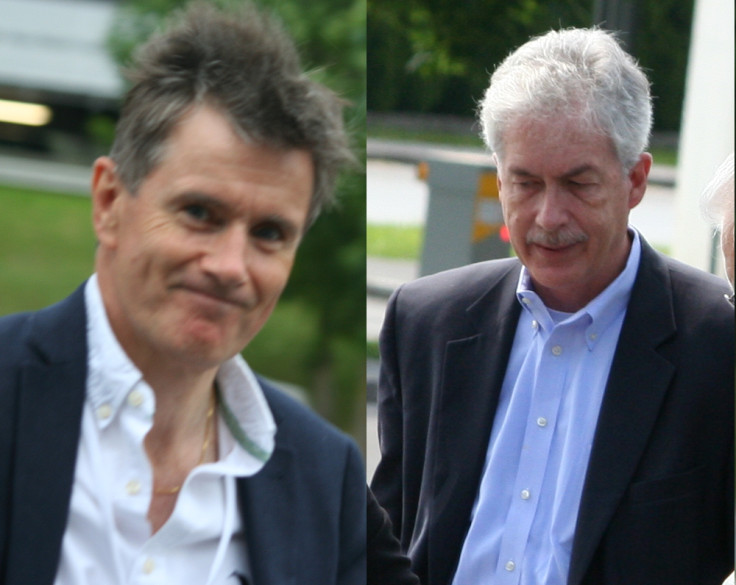The Bankers of Bilderberg: The hills are alive with the sound of money

The dust has settled on another Bilderberg summit. George Osborne is safely back in Westminster, his mind a whirl from three solid days of seminars and discussions about European strategy, globalisation and Greece.
The attention-dodging three-day meeting was held in a luxury Tyrolean hotel, tucked up an alp in Austria. There were no singing nuns being chased around by evil Nazis to be seen; instead, it was the master race of big finance – dressed in a camouflage baseball caps and beige slacks – aka the Talent, the rain-makers, the big-hitters and "the smartest guys (and a gal) in the room".
It was the usual heady mix of politicians and venture capitalists, senior policymakers and some extremely powerful investment bankers. Each year, the heads of some gigantic asset management companies find the time for Bilderberg, including this year the CEO of the world's 6<sup>th largest: JPMorgan Asset Management.
JPMorgan was also represented at the Austrian summit by four members of its International Council, including Henry Kissinger and Turkish billionaire Mustafa Koç. HSBC had three people at the summit, including group chairman Douglas Flint. Goldman Sachs flew in four.
Here's Goldman Sachs board member James A Johnson at Innsbruck airport:

And here's his colleague, the chair of Goldman Sachs' board of international advisers, Robert Zoellick (he's on the right; on the left is James Mattis, a board member of one of the world's largest arms manufacturers, General Dynamics):

Besides Goldman Sachs, HSBC and JPMorgan, financial giants Santander, Lazard and Deutsche Bank all sent their chairman to the meeting. In other words, a decent chunk of the world's high-finance and banking elite cleared their desks and made their way halfway up a mountain for Bilderberg. And the question you have to ask is: why?
Bilderberg group
Established in 1954
An annual meeting of leading political and business figures from across the globe.
Each summit is top secret, with no access granted to journalists and the general public.
High profile attendees this year included chancellor George Osborne, Google CEO Eric Schmidt and former US Secretary of State Henry Kissinger.
It is pretty well answered by the single, overarching "global business principle" of JPMorgan Asset Management: "Throughout our long and distinguished history, we have been steadfastly committed to putting our clients' interests first."
The company's one job is to maximise profits for their clients. And this isn't a job they take lightly. It's their entire raison d'être, as they say in the Tyrol.
JPMorgan Asset Management is "a steady source of profit for the parent company". That's according to a profile in American Banker, which in 2013 described Mary Erdoes, its CEO, as "the most powerful woman in finance". This is someone famous for working "exceptionally long hours", according to Forbes magazine. Erdoes told Forbes: "There is no substitute for really superhard work, first in, last out."
And that's what Bilderberg is for these people: work. Erdoes will have been first into Bilderberg on Thursday, and last out on Sunday. This is no Tyrolean hiking holiday for the hard-working bankers at Bilderberg; this is big business.
In other words, that perpetually asked question "what is Bilderberg?" has a very simple answer: it's something the co-chairman of KKR and the vice chairman of BlackRock think is worth attending.
BlackRock is the world's biggest asset management company, with $4.8tn (£3tn, €4.3tn) of assets. KKR is the second biggest private equity company in the world. Don't tell me KKR boss Henry Kravis has flown to Austria for the food. I'm not even sure he eats food. I think he just licks the magnetic strip of his credit card three times a day.

These people make their money by staying ahead of the trends, so, being present at a private policy summit in which three European prime ministers, two finance ministers and the president of Austria are discussing "European Strategy" is an enormous boon. This is how these banks and hedge funds make money for their clients (and themselves): by strategising.
There are people at the conference who literally deal in business intelligence. Like Sir John Sawers, the former boss of MI6, who now runs Macro Advisory Partners. The suave Sawers, a man who never undoes one button when he can unbutton two, took one of MAP's global advisers, William J Burns, to Austria.

Clients of MAP are promised "a competitive advantage in a complex world". It's a very simple formula: using information to maximise financial gain. As MAP puts it: "Leveraging our insights into the strategies of investors, policy makers and political actors, we identify key future macro investment themes." Whatever else it is, Bilderberg is clearly something worth leveraging.
Back in 2012, the chairman of JPMorgan's International Council described Bilderberg as "a really useful group", after years of denying he'd ever attended. That chairman is, of course, Tony Blair. (If you want a laugh, watch Blair's attempt to answer Luke Rudowski's question about there being a "conflict of interest?")
George Osborne needs to be asked why is he was going to, in his official capacity as chancellor, a private summit so hungrily attended by the world's greediest and smartest venture capitalists and investment bankers?
It's not like he just dropped into a business lunch for an hour. This is one of the biggest events in his political calendar. And its the event he speaks the least about.
It's fair to ask whether the British taxpayer is getting value for money in sending him there. Or are we just feeding Osborne to the lions of high finance? Are we spending money to increase the coffers of Goldman Sachs? It certainly looks that way.
Some people defend the way Bilderberg works by saying: "It's good that these people can get together and talk for three days in private." They have to remember a) who lots of these people are, and b) what they would define as "good". Unless you have your global assets managed by KKR or JPMorgan, it's likely that your understanding of "good" might not entirely overlap with theirs.
Charlie Skelton is a writer on Have I Got News For You and @deyook on Twitter.
© Copyright IBTimes 2025. All rights reserved.






















